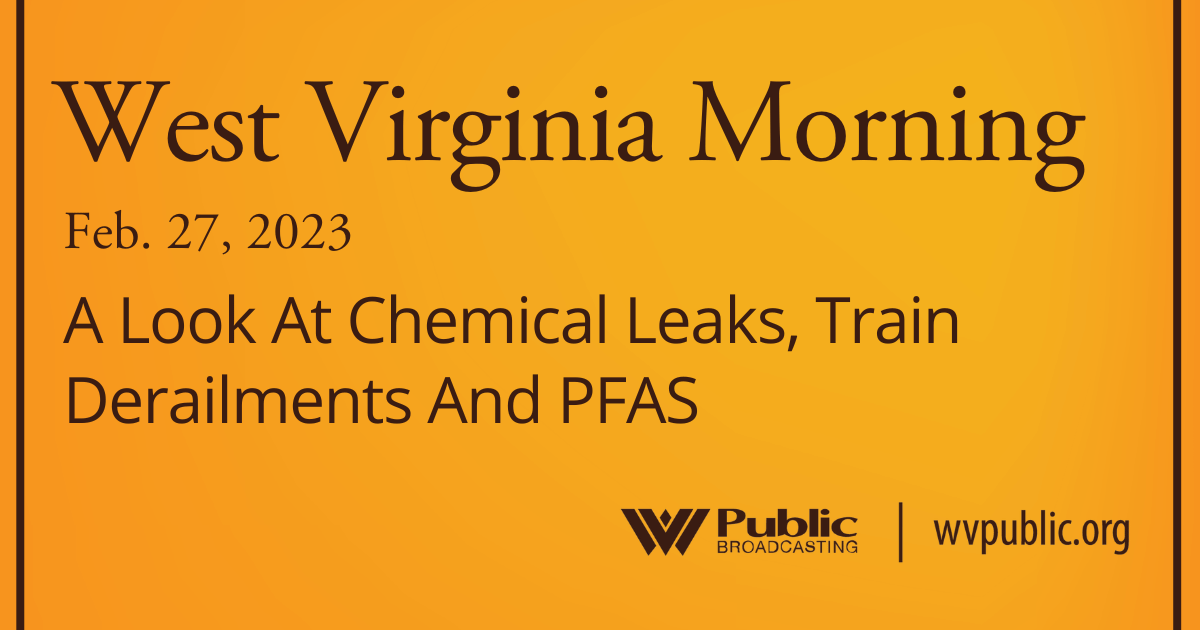Speaking during his regular briefing Thursday, the governor offered an update on the chemical spill from a freight train that derailed near East Palestine, Ohio nearly two weeks ago.
As a plume of chemicals slowly makes its way down the Ohio River, Gov. Jim Justice said “thus far” there is no danger to public drinking water supplies.
Speaking during his regular briefing Thursday, the governor offered an update on the chemical spill from a freight train that derailed near East Palestine, Ohio nearly two weeks ago.
Justice said the Emergency Management Division (EMD), the Department of Environmental Protection (DEP), the Department of Health and Human Resources (DHHR) and the West Virginia National Guard are “on top” of the situation.
Scott Mandirola, deputy cabinet secretary for the DEP said his agency is coordinating with the Ohio River Sanitation Commission (ORSANCO), the Ohio Environmental Protection Agency, and the U.S. Environmental Protection Agency as it monitors the water quality of the Ohio River.
Mandirola said samples of water collected Wednesday along the Ohio River from Ravenswood to Parkersburg show low concentrations of the chemical butyl acrylate, below three parts per billion.
“These preliminary monitoring results are still well below the provisional health guidance values issued by the U.S. Agency for Toxic Substances and Disease Registry, which is 560 parts per billion for drinking water and continuing to decrease as the plume travels downstream,” he said.
He said the Greater Cincinnati Water Works is running confirmation samples to quantify concentrations.
Mandirola said the plume is estimated to reach the Huntington area by late Friday or early Saturday morning.
“The leading edge of the plume is estimated to be near mile marker 264 today on the Ohio River which is near Point Pleasant, and the mouth of the Kanawha River,” he said.
He said the influx of water from the Kanawha River and current rainfall will further help to dilute the plume as it makes its way downstream.
The DEP has air monitoring stations in the Northern Panhandle of West Virginia. Mandirola said, so far, there have been no effects to air quality stemming from the derailment.
The U.S. EPA meanwhile continues to conduct air monitoring around the perimeter of the crash site in Ohio. Mandirola said they have not detected any concentrations of contaminants above health advisory levels.
“We know that the public is rightly concerned about this issue,” said Commissioner of the West Virginia Bureau for Public Health Matt Christianson.
He said his department has been cooperating with all of its state partners as it closely monitors the situation.
“DHHR and the West Virginia Bureau for Public Health have worked very closely with water companies as we learned of this spill and of this potential contamination and have offered guidance to those water companies as this plume has passed,” Christianson said.
On Thursday, U.S. Sen. Shelley Moore Capito, R-W.Va., announced that she fully expects the Senate and House of Representatives in Washington to hold hearings on the Ohio train derailment.
